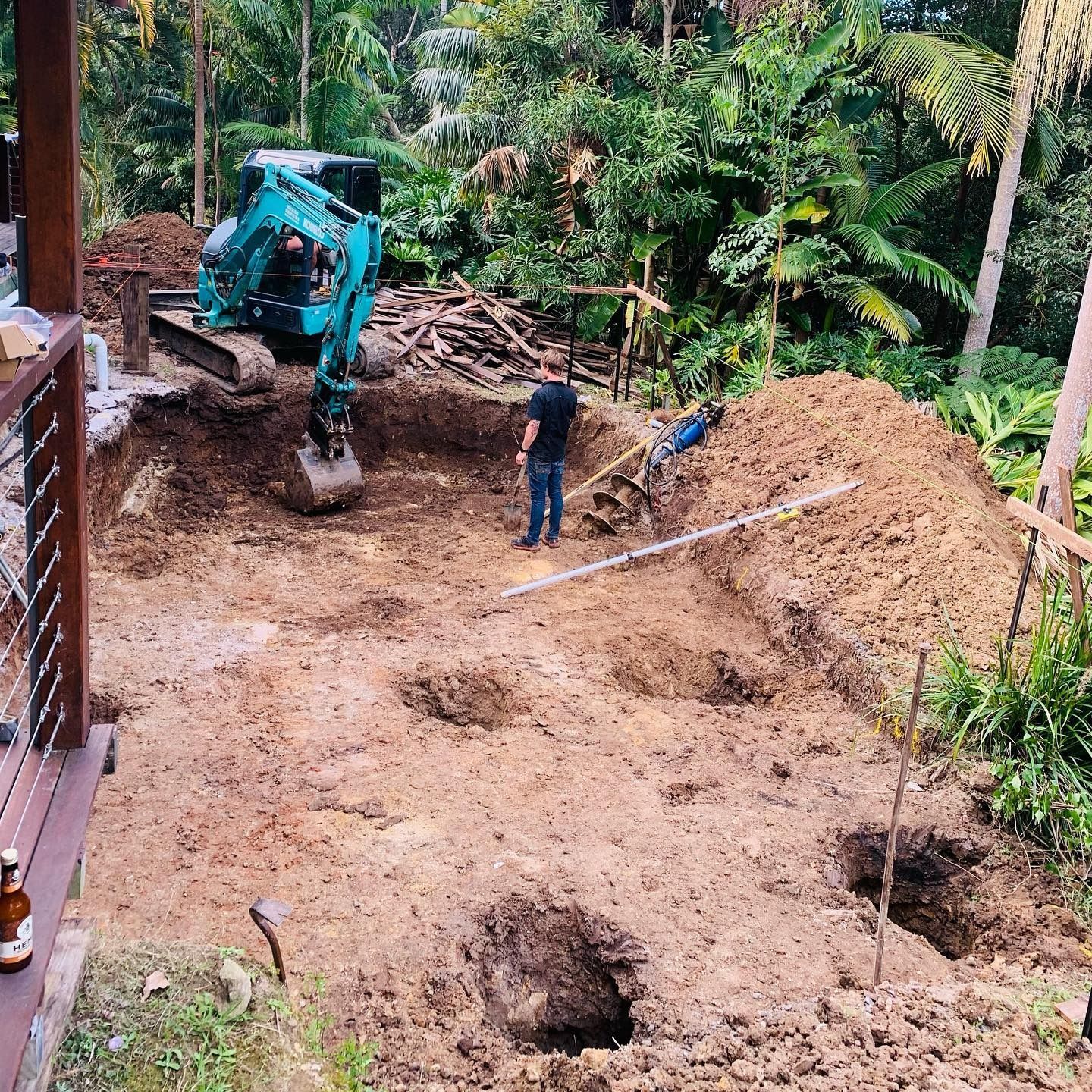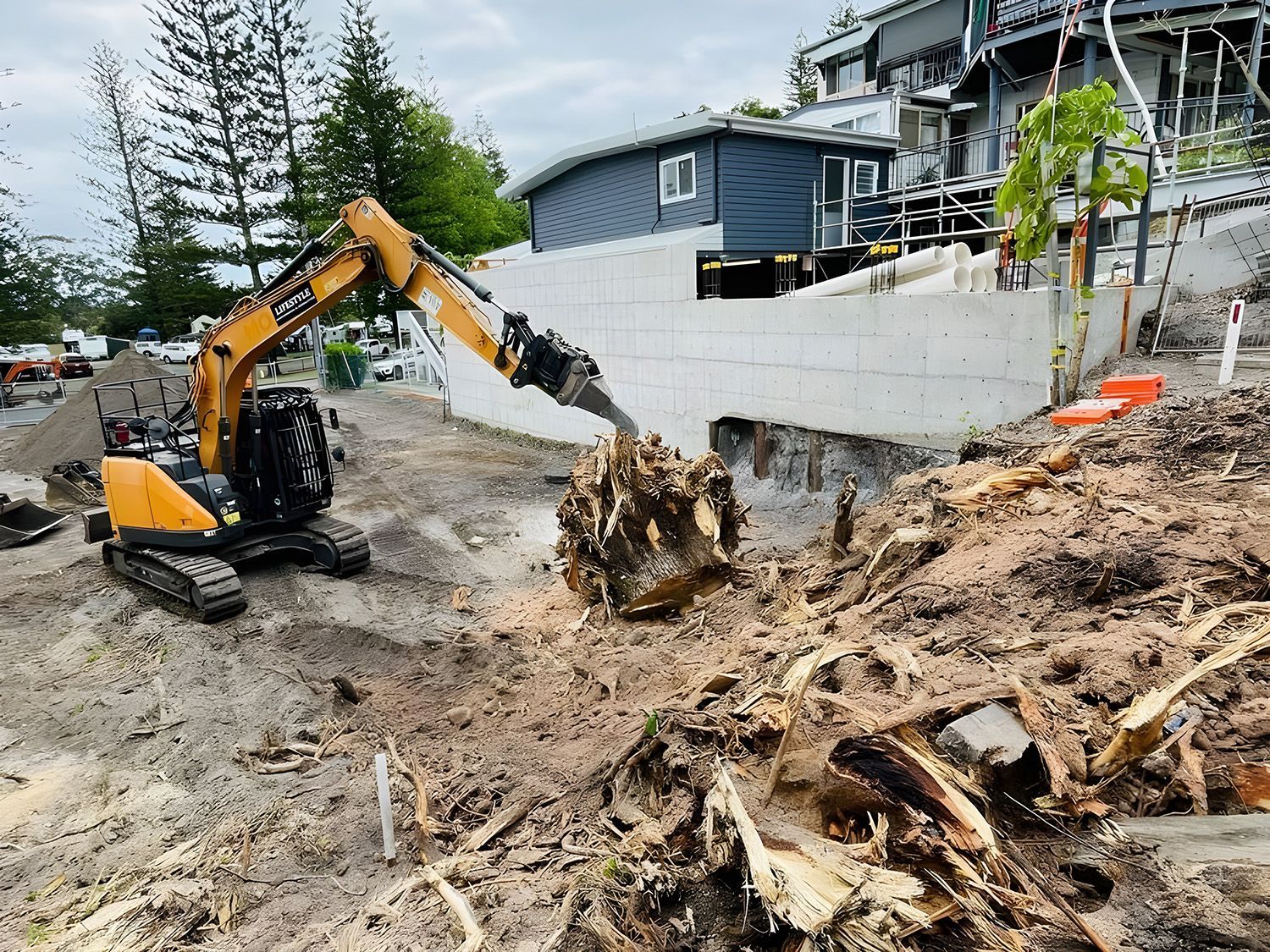Commercial & Industrial Demolition In Tweed Heads: What Businesses Should Know
Demolition might seem straightforward from the outside, but for business owners and developers, it’s a tightly regulated and technically demanding process—especially when it comes to commercial demolition or industrial demolition in Tweed Heads. Whether you're preparing a retail site for redevelopment or dismantling an aging warehouse, understanding the process is essential for keeping your project on schedule, within budget and compliant with regulations.
This guide outlines what business owners should know before engaging a demolition contractor, from timelines and safety to waste recovery and minimising disruption.
Understanding The Scope Of Commercial Vs Industrial Demolition
While both commercial and industrial demolitions involve dismantling structures, the scope, risk profile and technical requirements often differ significantly. Knowing which category your project falls into helps you plan appropriately and ensures the right team and equipment are used.
Here’s how these two demolition types typically differ:
- Commercial demolition often involves buildings such as offices, retail stores, schools and hospitality venues. These structures typically feature a combination of materials and are often situated in densely populated urban areas.
- Industrial demolition usually applies to factories, plants, warehouses and processing facilities. These jobs often require heavy-duty machinery, environmental testing and hazardous material removal.
- Commercial projects often involve staged demolition or partial structure removal to preserve sections of a site or reduce disruption to neighbouring businesses.
- Industrial demolitions typically require a more in-depth structural analysis due to the presence of steel frameworks, reinforced concrete, or built-in machinery.
Both require experienced professionals who understand the local regulations and logistical considerations of demolition projects.
Planning Ahead: Timeline Expectations For Demolition Projects
Demolition projects aren’t something that starts the moment an excavator arrives on-site. They require planning, council approvals and careful scheduling—especially in commercial or industrial settings where every day of downtime matters.
Factors that affect your demolition timeline include:
- The size and complexity of the structure dictate how long the physical demolition will take.
- The presence of hazardous materials like asbestos, which must be assessed and removed before demolition can begin.
- Site access limitations or neighbouring businesses that require staging to avoid disruptions.
- Local approval processes, including DA submissions, compliance with heritage overlays or EPA environmental clearances.
Experienced contractors like Lifestyle Demolition provide realistic scheduling upfront, helping you align your demolition timeline with construction or redevelopment phases.
Complying With Local Safety & Environmental Regulations
Demolition work in Tweed Heads is heavily regulated to protect workers, surrounding properties and the environment. Engaging a licensed and compliant contractor is essential for meeting legal obligations and avoiding fines or work stoppages.
Business owners should be aware of key regulatory requirements, such as:
- Contractors must be licensed to perform demolition in New South Wales and have valid insurance, including public liability and workers' compensation.
- Safe Work Method Statements (SWMS) must be prepared, covering risk assessments, equipment use and hazard controls.
- Any asbestos or hazardous material must be identified, removed and disposed of according to state and federal laws.
- Dust suppression, noise control and site security measures must be in place throughout the project.
A trusted demolition provider will guide you through compliance and manage all required documentation on your behalf.
Site Preparation & Structural Assessment Come First
Before demolition can begin, the site must be made safe and structurally assessed to ensure a safe and efficient process. Skipping these steps can lead to unnecessary delays, cost overruns, or safety incidents.
Here’s what this critical stage typically includes:
- Disconnecting services like electricity, gas, water and sewerage to prevent hazards during demolition.
- Conducting a structural inspection to assess how the building will respond to machinery and ensure no unexpected collapses occur.
- Performing a hazardous materials audit to identify and plan for safe removal of items like asbestos, lead paint or chemicals.
- Installing barriers, signage and fencing to protect surrounding areas and restrict unauthorised access.
This preparation phase forms the foundation of a safe and successful commercial demolition in Tweed Heads or an industrial project.
Waste Management & Salvage: Reducing Environmental Impact
Modern demolition isn’t about tearing things down and sending everything to a landfill. Responsible contractors prioritise waste sorting, recycling and salvage to reduce environmental impact and often cut costs.
Smart waste management strategies include:
- Salvaging materials like timber, bricks, and fittings for reuse or resale reduces the volume of waste.
- Crushing concrete onsite for reuse as road base or fill material.
- Separating metal for recycling not only benefits the environment but also offsets disposal costs.
- Ensuring hazardous materials are isolated and removed using certified processes.
Contractors handling industrial demolition in Tweed Heads should always provide a waste management plan that aligns with the expectations of the council and the EPA.
How Professional Demolition Minimises Business Disruption
One of the biggest concerns for commercial property owners is how demolition will affect neighbouring operations or tenancies. A reputable demolition provider will work with your project team to minimise interruptions while maintaining safety and project momentum.
Professionals reduce disruption by:
- Offering after-hours or weekend work to avoid peak trade times for nearby businesses.
- Using equipment fitted with noise-reduction technology or working in scheduled shifts to reduce impact.
- Containing dust and debris with water suppression and perimeter screening.
- Staging demolition so it progresses in phases, keeping access routes open when needed.
These practices are essential to delivering commercial demolition in Tweed Heads without risking lost business for you or your neighbours.
Key Questions To Ask Your Demolition Contractor Before Work Begins
Before you sign a contract, it’s worth asking a few key questions to make sure you’re hiring a capable and professional team. The right answers will give you confidence in their ability to handle the job safely, legally and efficiently.
Ask prospective contractors:
- Are you fully licensed and insured for commercial or industrial demolition in NSW?
- What’s your experience with projects similar in scale or complexity to ours?
- How will you manage hazardous material removal, if required?
- Can you provide a clear demolition schedule and project plan?
- What’s your plan for dust, noise and debris control during the work?
The answers to these questions will help filter out underqualified operators and identify those who are serious about safe, compliant demolition services in Tweed Heads.
Why Businesses In Tweed Heads Trust Lifestyle Demolition
When it comes to commercial or industrial sites, it’s critical to work with a team that brings both technical capability and local insight. Lifestyle Demolition has earned a strong reputation in the region for delivering complex demolition projects with precision, care and efficiency.
Businesses choose Lifestyle Demolition because:
- They’re fully licensed and insured, with a strong safety record across both commercial and industrial sites.
- They offer complete project management—from council approvals to post-demolition cleanup.
- They use modern, low-emission machinery suited for urban and sensitive environments.
- Their team is experienced with a wide range of sites, including shopping centres, warehouses and multi-storey buildings.
Whether your project involves clearing a retail site or decommissioning a manufacturing facility, they deliver results you can build on.
Start Planning with a Team That Gets It Done
At Lifestyle Demolition, we understand the high stakes of commercial demolition in Tweed Heads and the complexities of industrial demolition. Our experienced team provides comprehensive services—from site audits and regulatory compliance to safe dismantling and environmentally responsible waste management. Contact us to learn more about our services or to request a tailored quote for your next commercial or industrial project. Let us help you clear the way, safely and efficiently, so you can focus on what comes next.







